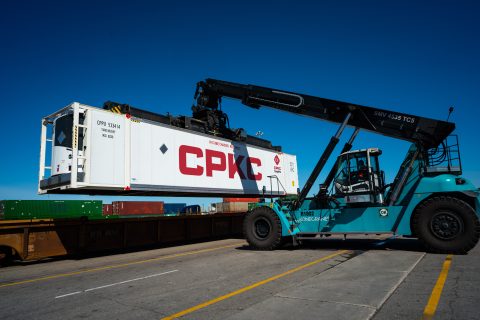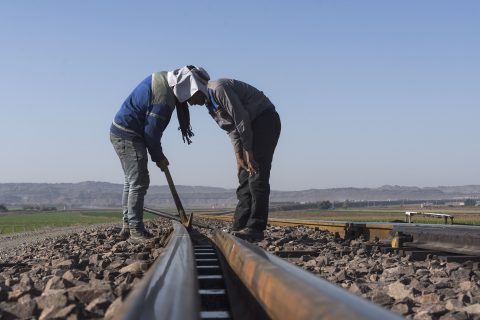Istanbul-Tehran-Islamabad train stuck again due to financial dispute

The fourth ITI train bound to Istanbul has been stuck on the Iranian border for more than a month. It departed from Pakistan on 28 March and reached Taftan on the border with Iran on 29 March. Since then, it has not moved forward because of a financial dispute between the Turkish and Pakistani forwarders involved in the service.
The two parties have been arguing over a profit margin. Specifically, the Turkish freight forwarder claims that the Pakistani counterparts owe them approximately 34,000 euros. On their behalf, the Pakistani forwarders claim that their Turkish counterparts are trying to gain a larger profit share.
Meanwhile, shippers are desperate to find a solution since many of them had shipped their products in late February, and they are still stuck in Iran. Their complaints even reached the ears of the Economic Cooperation Organisation (ECO) Secretariat in Tehran. This information is shared by the Pakistani newspaper Dawn.
Liability the service’s Achilles heel
The lack of liability from the partners involved in the ITI train seems to be the main issue that hinders the service’s development. Last year, the service’s inception was postponed multiple times. Shippers relying on the service accused the Pakistani forwarders of lack of transparency, communication issues, and no credibility since they delayed the train’s launching for no apparent reason.
On their behalf, the Pakistani forwarders explained that the central issue of the service were the US sanctions imposed on Iran and the lack of insurance coverage for third parties. Nevertheless, this was a known problem since the beginning, and the forwarder could inform its partners more sufficiently.
After all, in late December 2021, the first ITI train departed, with sceptics questioning whether this was a one-time service or a stable and frequent one. During the train’s welcoming in Istanbul, the Turkish transport Minister hastened to reassure the interested parties that the service would keep running, become stable and even extend towards Europe.
A few months later, this is not the case. On the contrary, the service faces more or less the same issues as in 2021, making it unviable and certainly unattractive to customers. After all, it was the chairman of the Pakistani Freight Association, Aasim Siddiqui, stating some month ago that the ITI train “never was, and never will be viable, mainly due to the US sanctions”.
But the sanctions do not seem to be the main issue here. It is, therefore, the lack of authority and the insufficient monitoring of transparency procedures that makes the ITI train problematic and keeps its customers on hold, while cargo is also endangered.
Also read:
-
Istanbul-Tehran-Islamabad train departed. Is it real this time?
-
Istanbul-Tehran-Islamabad train: political issues behind its stagnation
You just read one of our premium articles free of charge
Want full access? Take advantage of our exclusive offer





